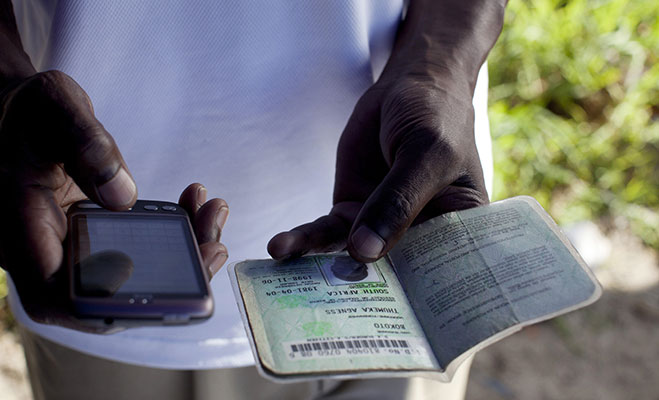African banks offer opportunities
New forms of banking offer Africa simpler ways of conducting business

Because African nations tend to have a large population of ‘un-banked’ and ‘under-banked’ people, the rise in popularity of electronic and mobile payment methods offers the possibility of transforming many economies.
The banking needs of those in African nations differ quite markedly from those in more developed economies. Rather than check bank account balances, which most people in these regions do not have, mobiles for Africans are more frequently used for cash services such as retail micro-transactions, bill payment, peer-to-peer money transfers and airtime top-ups.
Using these low or no-cost services, the un-banked can still transact business without using the still-cumbersome banking industry in their particular country. They are also very often creating business that did not exist before. Buying airtime, purchasing small services through their phone and paying bills are all transactions that move money around their country and thus contribute to the national economy. One reason mobile transactions are gaining ground in Africa is that many people had not established other banking or money-transfer habits that had to be changed or broken. For many Africans and almost all rural Africans, this is their first exposure to banking or money transfer options.
Nigeria, for example, has become the world’s tenth largest mobile market. Fortis Microfinance Bank, established in Nigeria in 2007, has already opened a mobile offshoot, Fortis Mobile Money, which it is setting up to serve its new customers across the country. Nigeria is also working to reduce the amount of paper and coins in circulation, which should strengthen mobile banking’s footprint there.
According to Bloomberg, South Africa’s economy expanded 2.9 percent in the fourth quarter of 2011; however, unemployment remains high at approximately 25 percent. The country’s middle class continues to grow though and opportunities abound for more traditional stores, as well as online companies. As the economy continues to expand, more and more people will need some sort of banking service.
In many African countries, banking services are rudimentary at best. Banks are open for only short periods of time and have extremely limited geographic scopes. In addition, ATMS, if they are available at all, service long queues of people often waiting in line for hours. Mobile technology has the capability to completely transform the banking industry in these countries. Companies that can position themselves correctly will promote trade and industry, influence economic activity and help balance the economic growth of different regions within the country. Mobile companies in African nations may well be poised to become the new storehouses of their country’s wealth, as well as facilitators of cash flow. Investment, trade and new production may be in the hands of mobile companies rather than the more traditional banks, which will promote rapid movement of money throughout the economy.













